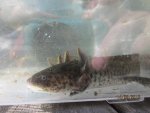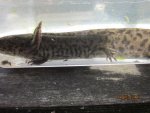The argument that hybrids are wrong because they go against evolution is silly as hell...
I have two basic problems with hybrids in the hobby. The first one is the motivation for creating this hybrids, which boils down to commercial interests...i hate that. The other reason why i don´t like them is dishonesty. In most cases, where hybrids are produced, they are then bred back to the parental lines. This usually produces animals that can pass as non-hybrids, specially to the average hobbyist. In the end, there is a situation in which you don´t know what you are buying...you may think you are getting a certain species, but in reality you could be getting a partial hybrid. This is a problem at all levels of hybridization, not just between separate species. Hybrids from different localities, different subspecies, etc, are also very common. The majority of hobbyist couldn´t care less, but those who do find that they have no access to what they are looking for.
Rather than generating genetic diversity, what this mentality of "it´s ok to cross anything" produces is the opposite..an homogenization of the captive gene pool and the loss of regional variants.
There´s also another aspect of the generalized mentality in the hobby that is indirectly related which is the need to breed what you have, no matter what. If in order to breed you have to create hybrids, well, who cares...
I have no problem with an hybrid so long as it is a healthy animal, if it´s going to be kept as a pet. Its genetic background is largely or totally irrelevant. The problem is the complete lack of honesty and integrity in the hobby which means that hybrid and non-hybrid lineages are not kept separate.
We have an excellent example in our neck of the woods with "axolotls". Even though most of us at this point are aware of the genetic introgression, they are still labelled as axolotls with no acknowledgement of the fact. As a result, if there were any lineages in captivity that were 100% axolotl, they are almost certainly lost because people would never think to keep "axolotls" separate from axolotls. Now the result is that most probably, there are no original bloodlines in the hobby and that even if there are, you can have no guarantee whatsoever.


